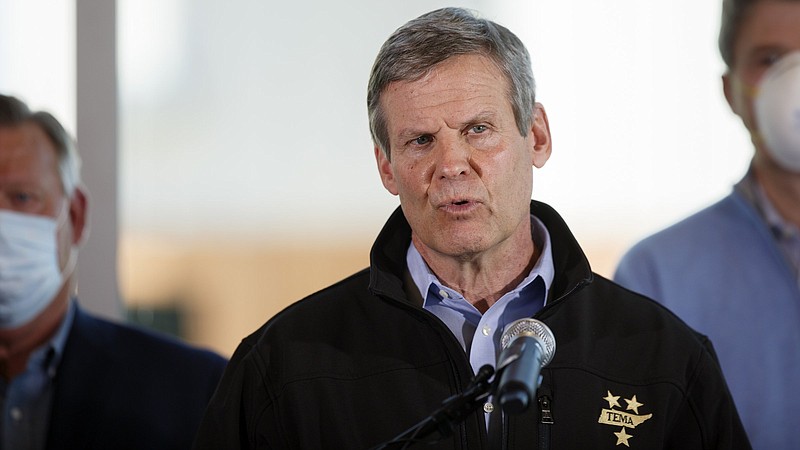NASHVILLE - As Tennessee Gov. Bill Lee deliberates privacy concerns about identifying COVID-19 patients for law enforcement, the head of the Tennessee Sheriffs' Association weighed in last week with a letter to Lee calling the information "vital to our first responders."
The association president, Montgomery Sheriff John S. Fuson, thanked Lee for having instructed the state Department of Health "to release the minimum amount of protected health information of those who have tested positive for COVID-19."
"This information," Fuson wrote, "is vital to our first responders as it helps them identify and properly prepare themselves for contact with citizens that have tested positive for the virus."
His letter also said that first responders are granted access to the information under federal health privacy laws.
"This provision of the law not only helps prevent the spread of infectious disease, access to this information is literally saving the lives of the thousands of men and women serving on the front line of this," Fuson said.
Fuson said law enforcement needs the information "to protect the health and safety of our first responders. Failure to do so will result in a weakened front line at a time when we need it to be its strongest."
Meanwhile, the Hamilton County Department of Health announced Thursday it would no longer share such information with police agencies, in the interest of ensuring trust in the community.
Lee has come under fire from Democratic lawmakers as well as leaders of minority communities while also facing restiveness among some fellow Republicans in the state legislature over the issue.
In a letter Monday, Rep. Scott Cepicky, R-Culleoka, wrote fellow Republicans that "as you know we now have contact tracers in place and sick lists being distributed to first responders and law enforcement. These lists are being used to single out individuals that have tested positive for the virus."
Noting only a small percentage actually become ill, Cepicky said, "I am concerned that these reports and lists will have an adverse effect on testing. As a result, Tennesseans will stop getting tested to protect their privacy."
A day later, Lee said, "All along the policy was a temporary one" and the "only decision we have is when to suspend it. [Being in] the midst of imminent danger allowed and required decisions to be made that we knew that would be temporary."
Saying the situation continues to evolve, Lee said because personal protective equipment has become far "more readily available to provide for the protection of first responders, [that] allows us to consider that temporary decision being changed.
"And we will do so and we'll be making state decisions about that in the coming days," Lee said.
Chattanooga police chose not to enter into the agreement, Mayor Andy Berke said last week, noting police often have to respond immediately to situations. He added, "We know that it is a concern when it comes to the privacy of residents of our community, so we have chosen not to sign the memorandum of understanding."
Rep. Yusuf Hakeem, D-Chattanooga, a member of the Tennessee Black Caucus of State Legislators, said, "We are very fortunate in Chattanooga and Hamilton County. The decision was made not to utilize or seek out that information."
Black Caucus members have called upon the state Department of Health to stop sharing the identities of those who test positive for COVID-19 with law enforcement.
Speaking with reporters earlier in the week, Lee said, "We're developing a strategy to make sure our first responders have access to protection. That's the ultimate goal here: Protect Tennesseans whether it be a first responder and we also want to protect the privacy of folks and so we'll move in that direction."
Contact Andy Sher at asher@timesfreepress.com. Follow him on Twitter @AndySher1.
